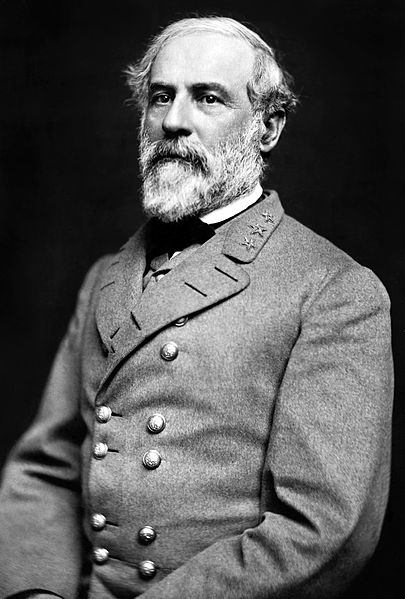
I’ve always felt sympathy for the Confederacy. Not, certainly, because of its support of slavery. That was a moral enormity, grossly inconsistent with the founding principles of our nation.
Partly, I suppose, it’s the romance of a lost cause. Those fighting on behalf of the South were, by and large, just as good, just as sincere, just as idealistic, just as devoted to their homes and their families, as were those who fought for the North. They fought bravely, mostly on their own soil, and they were defeated.
Partly, too, it’s because I grasp something of their political point. They were appalled at what they saw as the accumulation of power by the central government in Washington; the principles of federalism for which their fathers, grandfathers, and great grandfathers had rebelled seemed to be under assault. (What would they think of today’s national leviathan?) Moreover, I understand their argument regarding secession: If sovereign states had come together to form the Union, why were those sovereign states not free, at some point, to withdraw from it? Abraham Lincoln was a very great man, and I haven’t looked for his argument — I actually try to avoid becoming involved in reading about Lincoln and the Civil War; there are more than enough books on the subject in which to drown — but I don’t see the basis for his position that secession was illegitimate in principle and could not be permitted.
Anyway, my wife and I and our son visited the Museum of the Confederacy, in downtown Richmond, yesterday, and it brought back very eloquently the tragedy and complexity of the American Civil War.
And next to Lincoln himself, probably no figure from that war has loomed as large in the minds of his contemporaries and in subsequent history as Robert E. Lee, who reminds me, in some ways, of the warrior emperor Marcus Aurelius. Herewith, thirteen representative quotations from him:
The war . . . was an unnecessary condition of affairs, and might have been avoided if forebearance and wisdom had been practiced on both sides.
If the Union is dissolved and the Government disrupted, I shall return to my native State and share the miseries of my people, and, save in defense will draw my sword on none. (Letter to his son, 23 January 1861)
I have fought against the people of the North because I believed they were seeking to wrest from the South its dearest rights. But I have never cherished toward them bitter or vindictive feelings, and have never seen the day when I did not pray for them.
In this enlightened age, there are few I believe, but what will acknowledge, that slavery as an institution, is a moral & political evil in any Country. It is useless to expatiate on its disadvantages. I think it however a greater evil to the white man than to the black race. (Letter to his wife, 27 December 1856)
I have been up to see the [Confederate] Congress and they do not seem to be able to do anything except to eat peanuts and chew tobacco, while my army is starving. (Remark to his son in March 1865)
Sir, if you ever presume again to speak disrespectfully of General Grant in my presence, either you or I will sever his connection with this university. (Said when a member of the faculty at Virginia’s Washington College — now Washington and Lee University — had spoken insultingly about Ulysses S. Grant.)
Madam, don’t bring up your sons to detest the United States government. Recollect that we form one country now. Abandon all these local animosities, and make your sons Americans. (Advice to a Confederate widow after the close of the Civil War)
Never do a wrong thing to make a friend or to keep one; the man who requires you to do so, is dearly purchased at a sacrifice.
I cannot trust a man to control others who cannot control himself.
The forbearing use of power does not only form a touchstone, but the manner in which an individual enjoys certain advantages over others is a test of a true gentleman.
The power which the strong have over the weak, the employer over the employed, the educated over the unlettered, the experienced over the confiding, even the clever over the silly — the forbearing or inoffensive use of all this power or authority, or a total abstinence from it when the case admits it, will show the gentleman in a plain light.
The gentleman does not needlessly and unnecessarily remind an offender of a wrong he may have committed against him. He cannot only forgive, he can forget; and he strives for that nobleness of self and mildness of character which impart sufficient strength to let the past be but the past. A true man of honor feels humbled himself when he cannot help humbling others. (From a note found among his papers after his death.)
The trite saying that honesty is the best policy has met with the just criticism that honesty is not policy. The real honest man is honest from conviction of what is right, not from policy.
Obedience to lawful authority is the foundation of manly character.
The education of a man is never completed until he dies.
Posted from Richmond, Virginia










